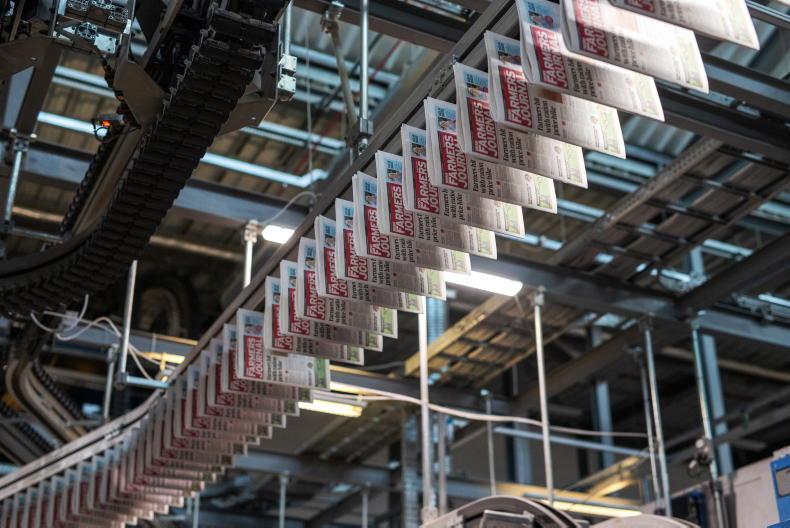The Government’s commission on the Future of the Media, established in October 2020 and scheduled to report in the middle of last year, managed to submit its report in October, not a great delay given that the chair, Brian MacCraith, also headed up the Government’s vaccination taskforce.
However, the minister, Catherine Martin, has not published the document and a necessary debate is hindered in its absence. Last Monday, the UK government announced a review of the BBC license fee, frozen for the next couple of years and possibly to be abolished in 2027, as has already been done in several European countries.
In Ireland, RTÉ’s finances have been in trouble for some years past and the license fee model dates from a very different world before the internet and when State broadcasters were statutory monopolies.
The finances of newspapers, local and national, have suffered along with the broadcasters
The commission’s remit extends to all media, not just broadcasting. The finances of newspapers, local and national, have suffered along with the broadcasters, as the internet companies have come to dominate the advertising market.
Newspapers have also lost circulation revenue – some Irish titles are selling half the number of copies they sold 20 years ago and whole chunks of advertising, classified for example, have been lost. Younger people have not acquired the newspaper habit and the decline under both revenue headings looks irreversible.
What happens to the print media is just as important for democratic participation as the fate of broadcasting
Only a handful of newspapers worldwide have made the digital transition successfully and some smaller US cities have no daily paper anymore.
What happens to the print media is just as important for democratic participation as the fate of broadcasting, but the license fee issue will dominate the discussion here, as it will in Britain, since the biggest broadcaster in both countries is state-owned.
RTÉ is even more dominant in Ireland than the BBC is in Britain since it is dual-funded, receiving both advertising revenue and the bulk of the license fee receipts. The BBC does not accept ads on its radio and TV channels in the UK, leaving the ad revenue for its competitors. RTÉ’s competitors can access a fund amounting to only a small portion of the license revenue and they have not managed to challenge RTÉ’s dominance.
There is a technology problem too
License fee income has become problematic in recent years and evasion has increased. There is a technology problem too – free-to-air services can be accessed on multiple devices and not everyone using the public channels may even possess a TV receiver. The TV license is in any event something like a poll tax, a flat charge per household unrelated to means. It may be only €160 per annum (€190 in the UK) but no government wants to be sending the bailiffs around to collect small sums and collection costs are an issue. The tech problem is not new either – radio licenses were scrapped when somebody invented car radios.
The answer?
The alternatives to license fee funding are straight Exchequer subvention or some form of alternative charge or fee. In the BBC’s case, they could be empowered to take ads on their UK channels but that would see them compete with the private broadcasters for a pool greatly diminished since the advent of Google and the other tech companies, which have pretty much eaten their lunch.
The most radical alternative is to forget about free-to-air broadcasting altogether and turn the State channels into subscription services – the willingness of the public to pay for television is not in doubt.
Netflix, Virgin and Sky in Ireland have levels of turnover comparable to RTÉ and a combination of subscriptions plus ads is an option for the BBC. Unless signals can be password-protected the subscription model does not work, and the preservation of free-to-air precludes direct charging for the service.
The Irish model of a dual-funded public service broadcaster has been comfortable for RTÉ, and they will be reluctant to give it up. But it has been tough going for the private radio and TV stations in a small market and the structure could hardly be described as competitive.
The print arm of the media shares the headaches of the broadcast side without the comfort blanket of state ownership for the largest player. Direct State subvention would hardly be acceptable for newspapers – how would you like it if the Government owned, or financed, The Irish Times or the Irish Independent? The simplest solution for RTÉ might nonetheless be the abolition of the license fee and an annual grant from the budget, with the inevitable rows about political interference and editorial independence.
The commission was asked to analyse the situation in both print and broadcast media. The week before last, Fianna Fáil senator Malcolm Byrne complained about the long delay in releasing the commission’s report. He was right to do so – the analysis, rather than the recommendations, are often what is most valuable in these documents.






 This is a subscriber-only article
This is a subscriber-only article










SHARING OPTIONS: